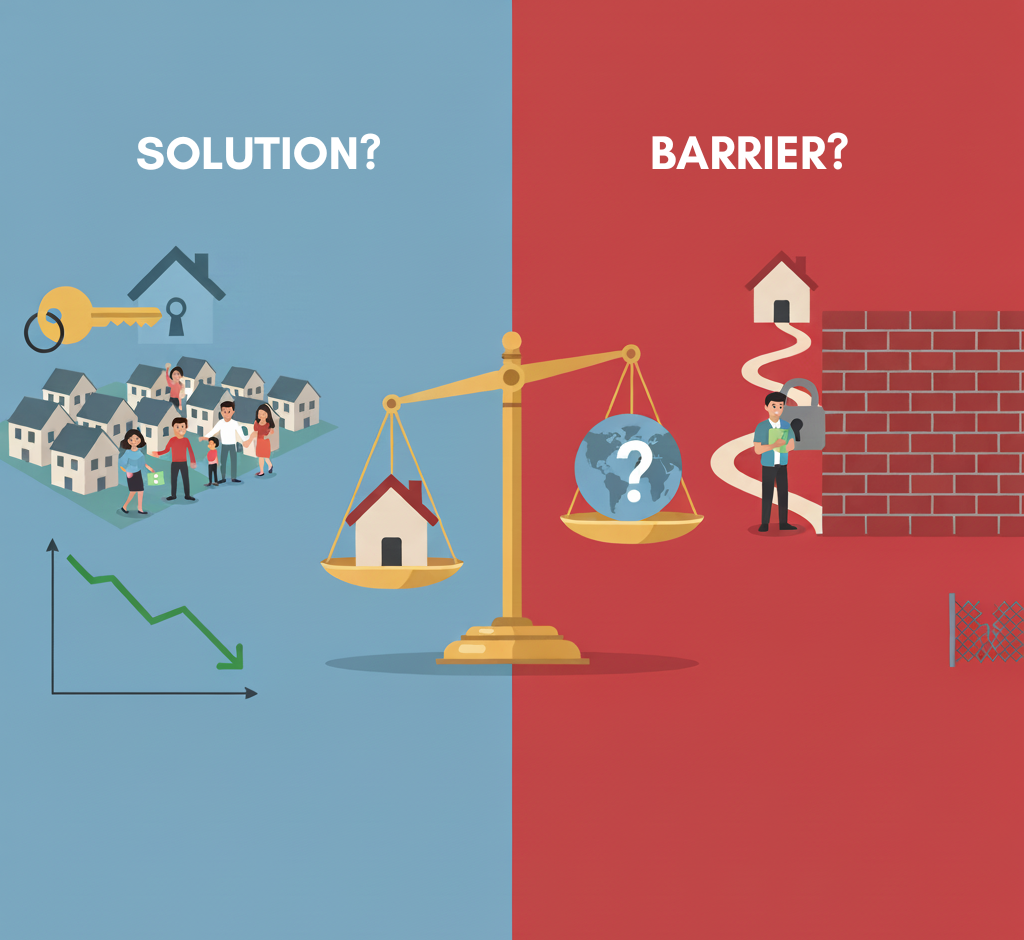Foreign Homebuyer Ban: A Solution or a Barrier to Housing Affordability?

The ongoing debate over Canada's ban on foreign homebuyers, initially introduced in 2023 and extended for an additional two years in February 2024, has stirred up considerable discussion within the mortgage industry. The federal government implemented the ban with the intention of easing home availability for Canadian residents, claiming that restricting foreign ownership would lead to more housing opportunities. However, as the housing market continues to face a slowdown, many within the sector are questioning whether the policy has had the desired effect or if it may be contributing to further complications in the housing sector.
A July 29 open letter directed at the government by a group of Canadian business and real estate leaders highlighted the concerns of those impacted by the ban. The letter argued that the policy was counterproductive, placing undue pressure on home construction, risking job losses, and exacerbating the existing affordability crisis. The call to reassess the ban also included a recommendation for the provincial government of British Columbia to reconsider its tax on foreign buyers, which had provoked a firm response from provincial officials determined to avoid a return to overheated markets fueled by foreign investment.
In early 2024, the federal government extended the ban on foreign homebuyers until 2027. This decision was backed by officials who emphasized that the restriction would help manage affordability issues and increase the housing supply for Canadian buyers. However, critics have suggested that the ban's impact on the housing market has been minimal. Some industry experts pointed out that while the policy may have limited the number of foreign buyers, luxury home prices have largely remained stable, showing that the ban has had little effect on addressing the broader housing affordability challenges faced by Canadians.
Statistics on foreign ownership support this view, with data indicating that foreign buyers represented just about 1% of the housing market in 2024, down from 2-3% in previous years. The impact of foreign buyers is primarily seen in high-end markets in major cities like Toronto, Vancouver, and Montreal, which does little to alleviate the pressure on first-time homebuyers in need of affordable options. The decline in foreign ownership coincides with a drop in immigration, which has historically helped fuel demand for housing in Canada.
Despite mixed opinions from industry experts, public support for the foreign buyer ban remains strong. Surveys show that a significant majority of Canadians, including a wide range of political affiliations, continue to support the federal ban on foreign real estate purchases, which is set to remain in effect until 2027. Some economists and real estate experts suggest potential alternatives, such as allowing foreign buyers to purchase only newly built homes, which could help stimulate investment without further inflating resale prices. This approach may also provide relief to developers struggling with stalled projects, offering them a chance to move forward with much-needed housing construction.





